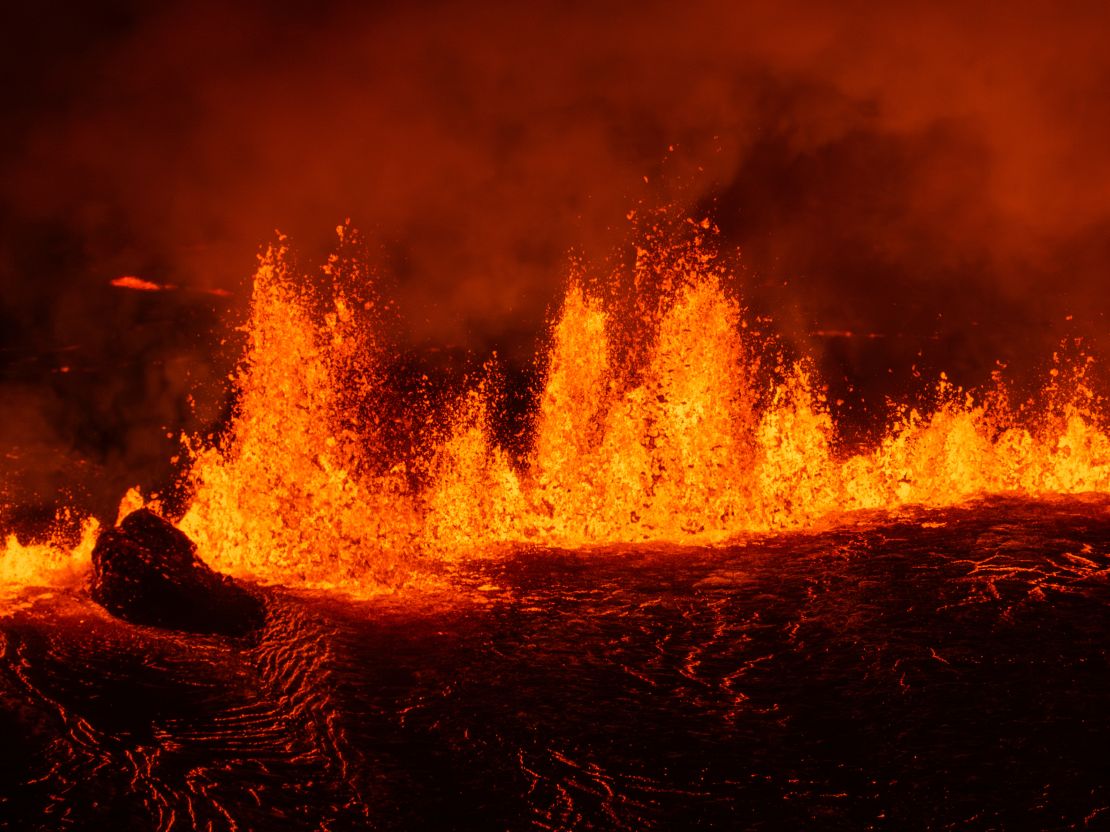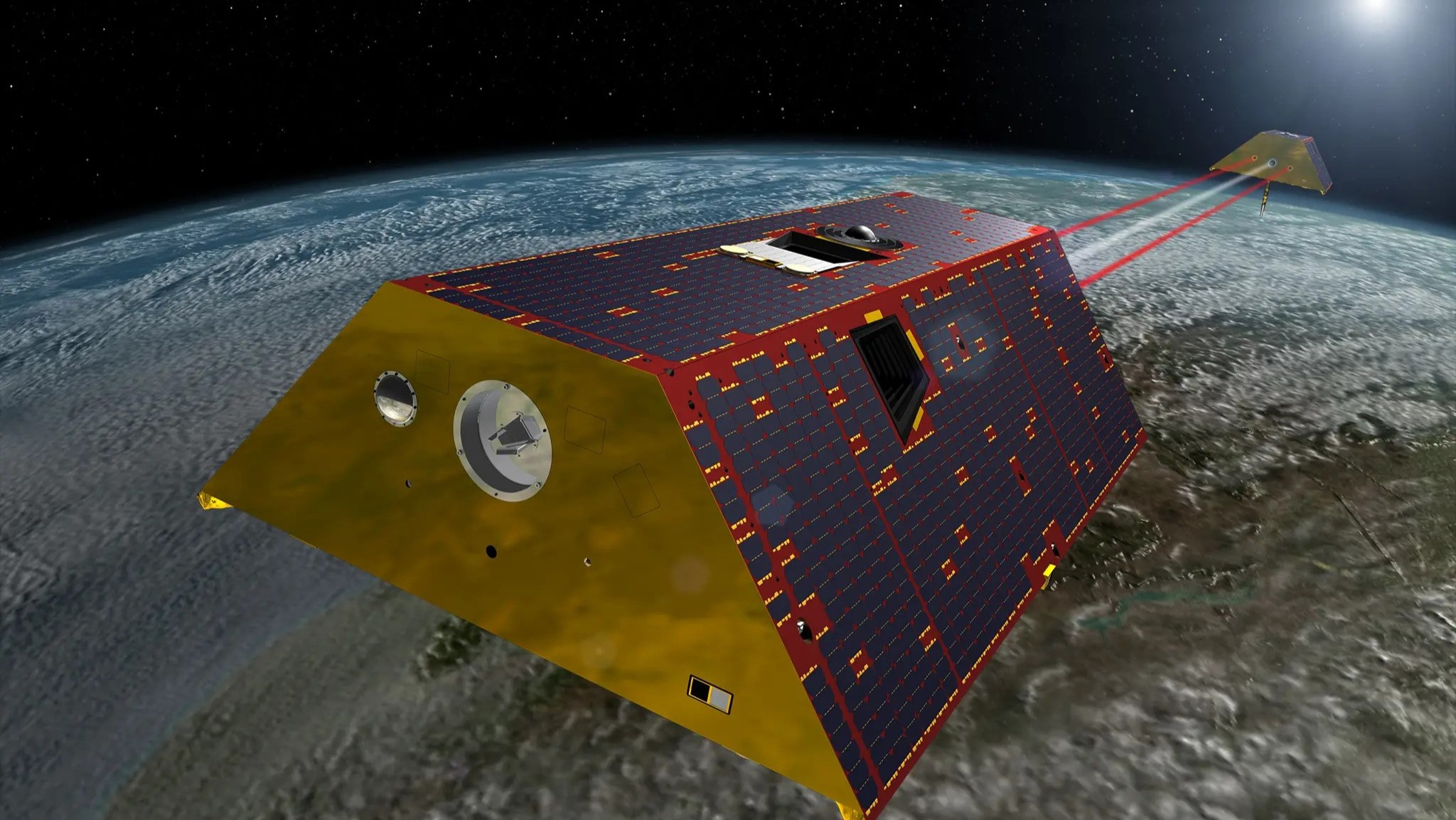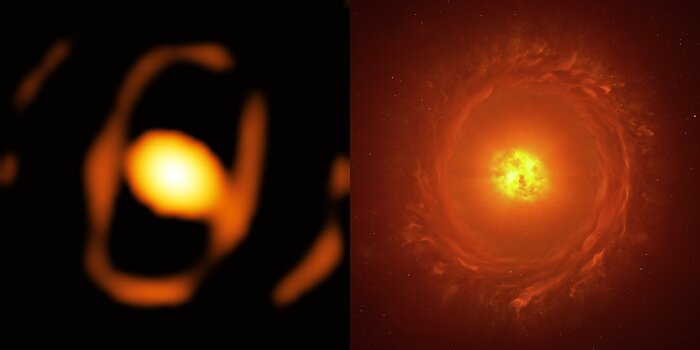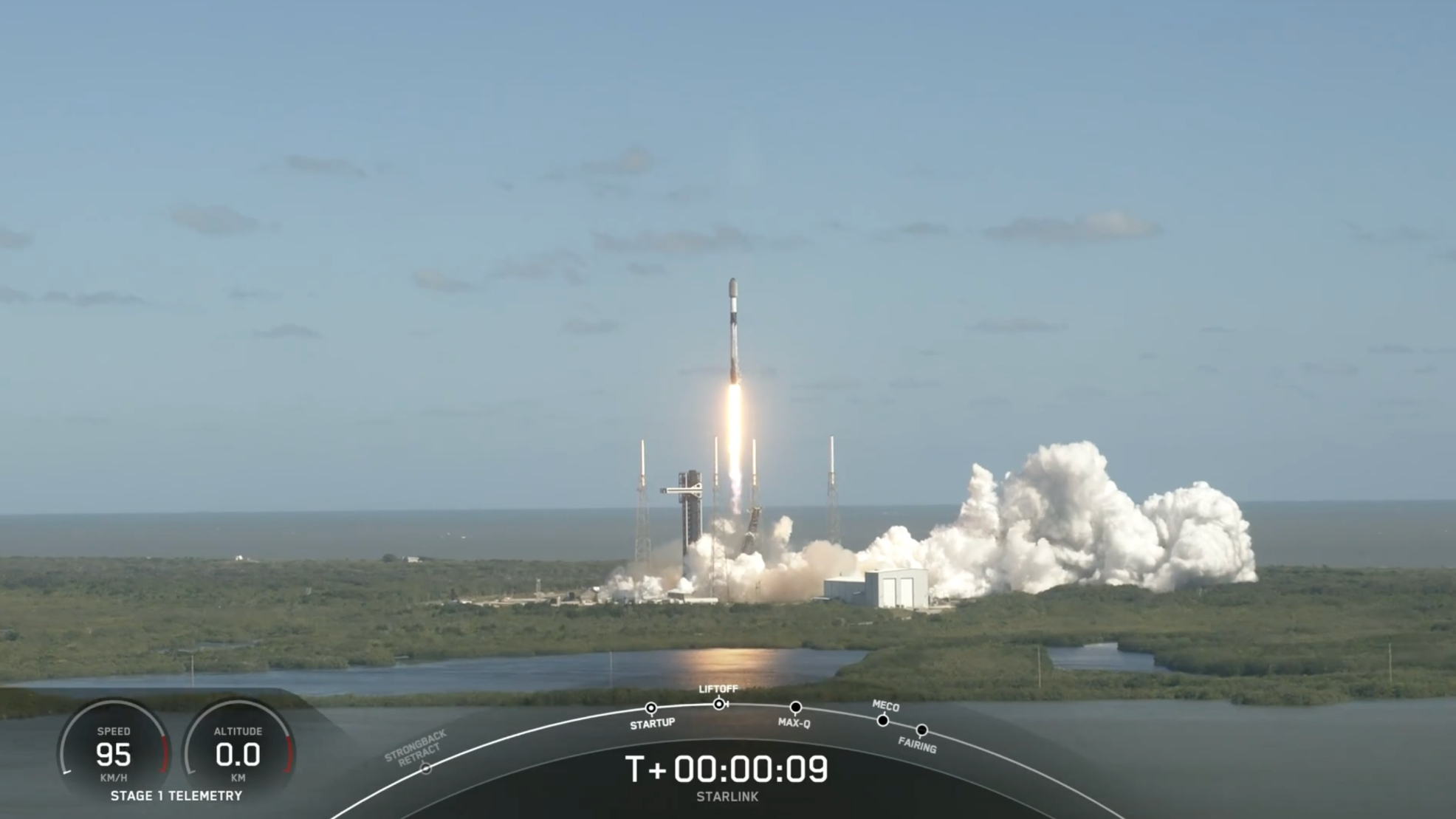In a historic moment for the United States, NASA’s Osiris-Rex spacecraft has brought back samples from an asteroid in deep space and safely landed in the Utah desert. This marks the first time such a feat has been achieved in American history after a seven-year journey.
The spacecraft released a capsule containing the asteroid samples from a distance of nearly 63,000 miles away. Four hours later, the capsule landed on military land as the Osiris-Rex spacecraft continued its mission to another asteroid. The Mission Recovery Operations team announced the successful touchdown, which occurred three minutes ahead of schedule. It was later revealed that the orange striped parachute opened at a higher altitude than anticipated, around 20,000 feet.
“We have touchdown!” exclaimed the Mission Recovery Operations team.
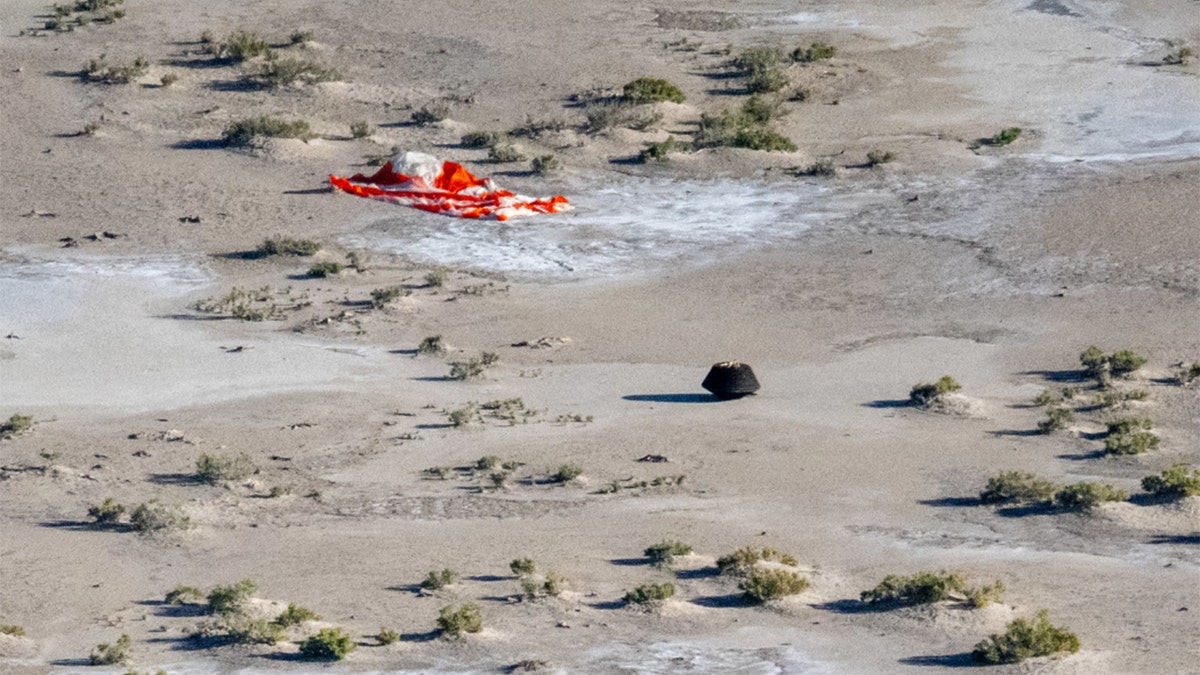
The sample return capsule from NASA’s OSIRIS-REx mission is seen shortly after touching down in the desert, Sunday, Sept. 24, 2023, at the Department of Defenses Utah Test and Training Range. The sample was collected from the asteroid Bennu in October 2020 by NASA’s OSIRIS-REx spacecraft. (Photo Credit: NASA/Keegan Barber)
According to NASA, radar data confirmed that the capsule entered the atmosphere at the expected time off the coast of California. The drogue parachute, the smaller of the two onboard, helped stabilize the capsule upon entering the atmosphere before separating from it. The main parachute deployed, slowing the capsule down from hypersonic speed to a mere 11 mph before it touched the ground.
VIDEOS CAPTURE FIREBALL METEOR LIGHTING UP COLORADO’S EARLY MORNING SKIES
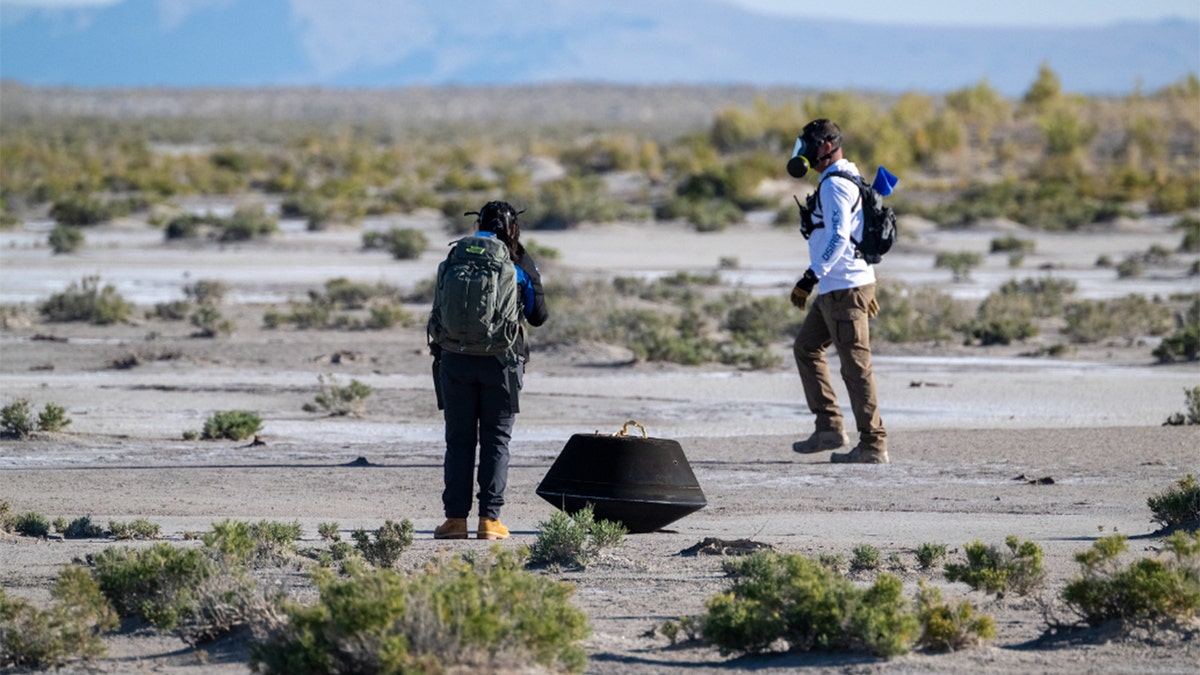
Lockheed Martin System Safety Engineer Victoria Thiem, left, and On Scene Commander of Recovery Stuart Wylie, right, perform preliminary checks on the sample return capsule from NASA’s OSIRIS-REx mission, Sunday, Sept. 24, 2023, shortly after the capsule landed at the Department of Defense’s Utah Test and Training Range. The sample was collected from the asteroid Bennu in October 2020 by NASA’s OSIRIS-REx spacecraft. (Photo Credit: NASA/Keegan Barber)
Ensuring the contamination-free preservation of the samples was a major concern after landing. Fortunately, the capsule was found intact and free from contamination, giving NASA a sigh of relief. The samples, said to be around 4.5 billion years old, will be carefully examined, and measurements will be taken soon after their safe transfer to a temporary clean room in Houston’s Johnson Space Center.
NASA APPOINTS NEW DIRECTOR OF UFO RESEARCH IN PUSH TO EXAMINE ‘ONE OF OUR PLANET’S GREATEST MYSTERIES’
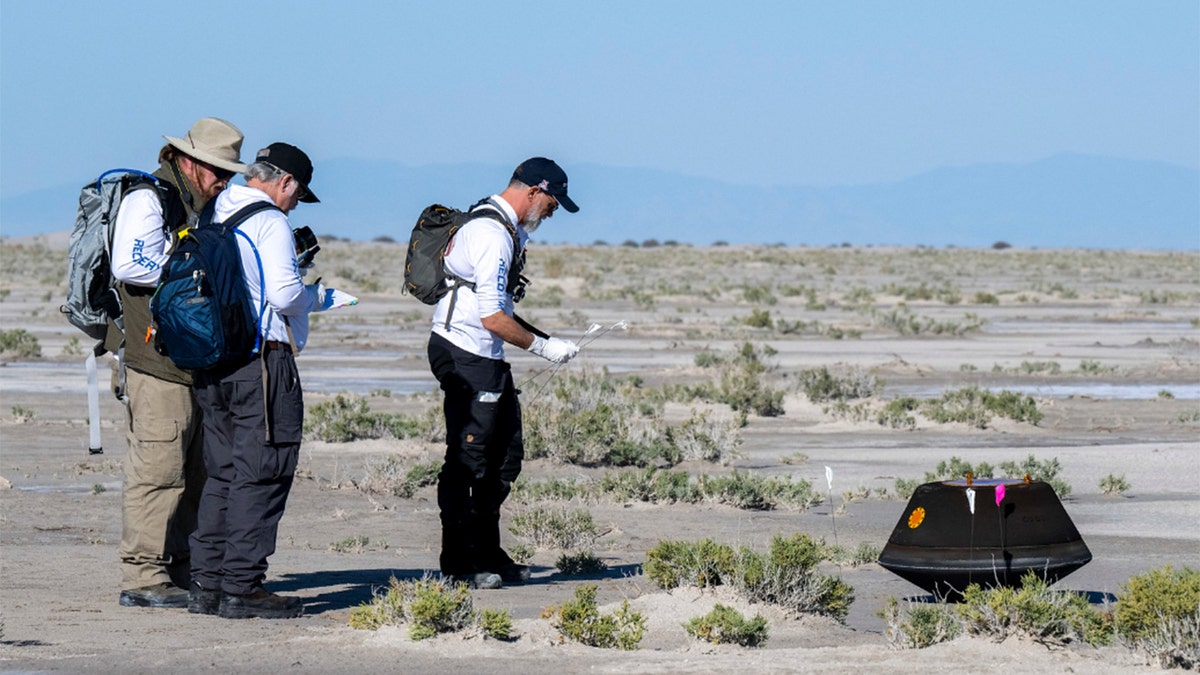
From left to right, NASA Astromaterials Curator Francis McCubbin, NASA Sample Return Capsule Science Lead Scott Sandford, and University of Arizona OSIRIS-REx Principal Investigator Dante Lauretta, collect science data, Sunday, Sept. 24, 2023, shortly after the sample return capsule from NASA’s OSIRIS-REx mission landed at the Department of Defense’s Utah Test and Training Range. The sample was collected from the asteroid Bennu in October 2020 by NASA’s OSIRIS-REx spacecraft. (Photo Credit: NASA/Keegan Barber)
NASA astronaut Sunita Williams, who was present during the landing process, expressed her amazement at the achievement, stating, “It’s like ‘Wow!’ This is just amazing. It can go from the movies, but this is reality.”
The capsule contains approximately a cup of rubble from the asteroid Bennu, which is believed to be carbon-rich. However, the exact amount will only be determined when the container is opened in the coming days. During the mission three years ago, some of the collected material spilled and floated away due to the lid getting jammed.
JOURNALIST PRESENTS MEXICAN CONGRESS WITH ALLEGED ‘NON-HUMAN ALIEN CORPSES’ AT UFO HEARING
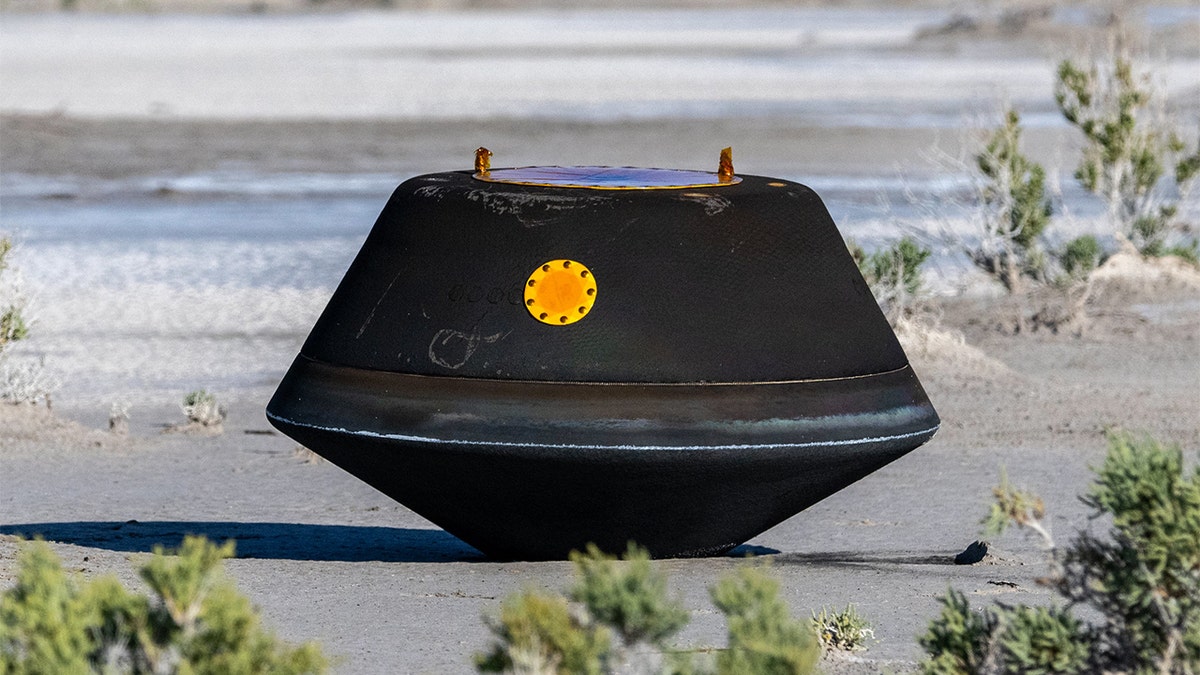
The sample return capsule from NASA’s OSIRIS-REx mission is seen shortly after touching down in the desert, Sunday, Sept. 24, 2023, at the Department of Defense’s Utah Test and Training Range. The sample was collected from the asteroid Bennu in October 2020 by NASA’s OSIRIS-REx spacecraft. (Photo Credit: NASA/Keegan Barber)
Japan is currently the only other country to have successfully gathered asteroid samples. Nevertheless, NASA’s haul from Bennu is the largest collection to date from an object beyond the moon. The Osiris-Rex spacecraft, launched in 2016 and costing $1 billion, reached Bennu after two years and used a vacuum mechanism to collect material from the small space rock. The return journey covered a distance of 4 billion miles.
Once the asteroid samples arrive at NASA’s Johnson Space Center in Houston, they will be flown to a new lab for careful analysis. The center already houses hundreds of pounds of moon rocks brought back by the Apollo astronauts.
HARVARD PHYSICIST AVI LOEB FENDS OFF ATTACKS FROM CRITICS AFTER STUDY REVEALS POSSIBLE ‘INTERSTELLAR’ LIFE
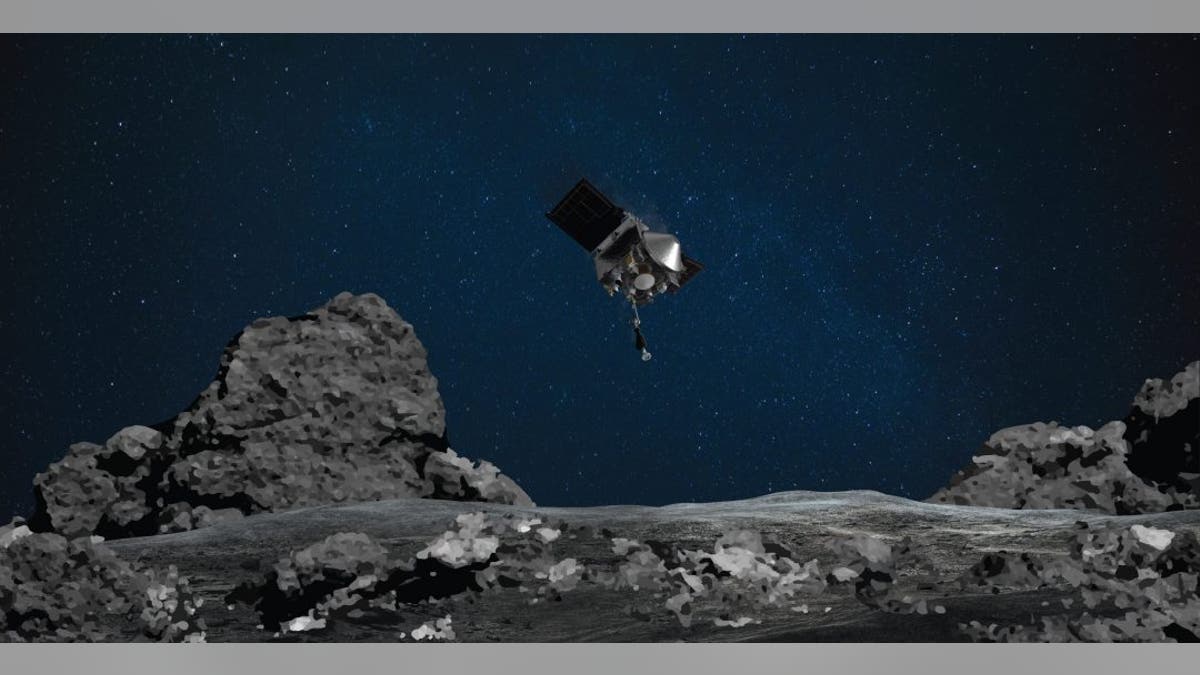
This illustration shows NASA’s OSIRIS-REx spacecraft descending towards asteroid Bennu to collect a sample of the asteroid’s surface. (Credits: NASA/Goddard/University of Arizona)
Nicole Lunning, NASA’s lead curator, stated that it will take several weeks to obtain precise measurements and conduct thorough examinations of the samples. NASA plans to share the findings with the public in October.
The Associated Press contributed to this report.


